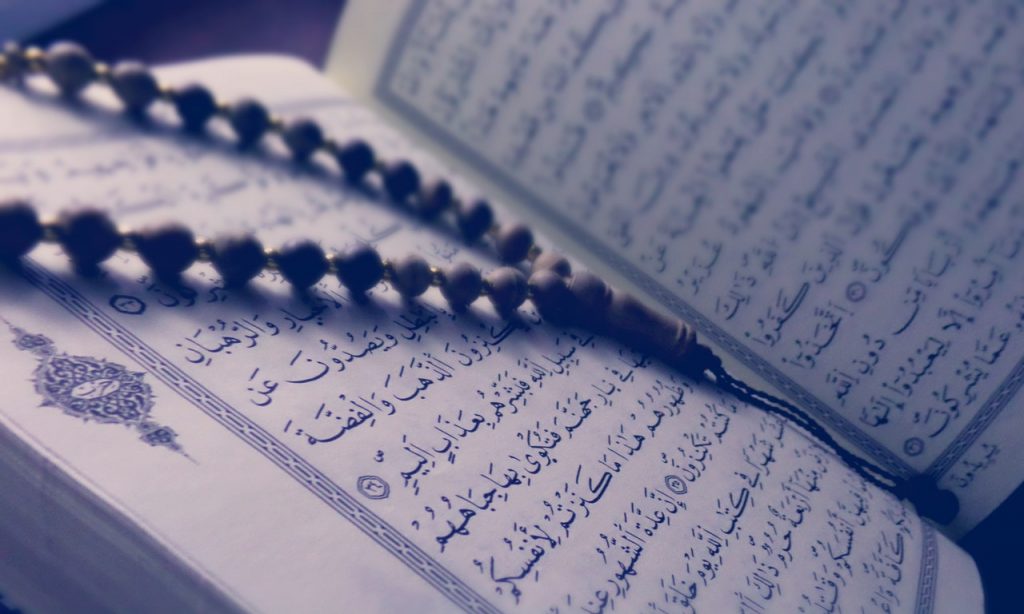The Quran tells us that when God sent the Prophet Lot to the city of Sodom to call its people to righteousness and the worship of God alone, what he saw baffled him. “Do you commit lewdness such as no one in the world has committed before you?” he cried to them. “Verily, you practice your lusts on men instead of women. Nay, but you are a people transgressing beyond bounds.”
The people of Sodom found Lot’s judgment of their sexual habits unbearable. They mocked him and exhorted one another to expel him and his family: “Drive them out of your town, these are indeed people who want to be pure!” (Quran 7:81)
In America, homosexual sex is officially tolerated, and in the case of Obergefell v. Hodges, the Supreme Court held that the concept of marriage may also be applied to same-sex couples. But the Court took pains to assure us that, unlike in Sodom, those in America “who adhere to religious doctrines may continue to advocate with utmost, sincere conviction that, by divine precepts, same-sex marriage should not be condoned.”
Or perhaps not.
Start your day with Public Discourse
Sign up and get our daily essays sent straight to your inbox.In 2012, Jack Phillips, a Christian who owns Masterpiece Cakeshop, a Denver bakery, was asked by a same-sex couple to design a cake for their wedding. The request put Jack in a dilemma because he believes that in God’s eyes, marriage only exists between a man and a woman, and that sex between two men is a sin. Jack had no animus toward the men as human beings and would have served them for any other reason, he explained to them, but to help celebrate their wedding ceremony would go against his conscience.
The couple quickly received a cake from another bakery, then filed a complaint against Jack with the Colorado Civil Rights Commission. The Commission ruled that Jack had to make cakes for same-sex weddings regardless of whether it violates his religious beliefs. Jack lost his appeals in state court, and his case will now be decided by the US Supreme Court.
To be clear, this is not a case of a businessman refusing to serve customers because of who they are, or even because he deemed their actions to be sinful. Jack merely declined to participate in a celebration of their sinful actions. What harm did the same-sex marriage couple suffer? They argue that Jack’s actions offended their dignity. In suggesting that their marriage was a sinful act he didn’t want to be associated with, Jack hurt their feelings. And for that he may lose his business.
The same-sex couple’s offense is understandable. The wrongdoing soul is wounded by reminders of its guilt, and often turns to pride for solace. “And when it is said to him, ‘Fear God,’ pride in the sin takes hold of him” (Quran 2:206). In this case, the couple’s response to Jack’s opprobrium was to use the power of the state to destroy Jack’s livelihood and ostracize him as a dangerous bigot.
The Masterpiece Cakeshop case should be of great concern to American Muslims. After all, mainstream Islam teaches that homosexual acts are sinful, and one can easily imagine scenarios in which Muslim restaurant owners would balk at supporting the celebration of a same-sex wedding, just as they might hesitate for religious reasons to cater a party with pork or alcohol. As the Quran admonishes: “Do not help one another in sin and transgression: and fear God” (Quran 5:2).
I find it deeply disturbing, therefore, that several “progressive” Muslim organizations, at least one of which is financed by far-left foundations, have joined atheist and gay rights groups in a friend-of-the-court brief supporting the drive to abolish the right of business owners to refrain from participating in activities they deem sinful. These groups argue that Jack seeks a religious license to discriminate against homosexual customers based on their “identity.” If he’s allowed to do so, they argue, Muslims will be exposed to ill treatment because businesses will be allowed to discriminate against customers on the basis of race and religion.
The argument of these progressive Muslims is flawed. To begin with, the religious belief that same-sex marriage should not be condoned is not analogous to racism, and it is deeply repugnant to suggest that it is. With this argument the progressive Muslim groups trivialize centuries of black slavery, Jim Crow laws, and civil rights struggles. They also advance the view that one who believes marriage is between a man and a woman is a bigot, smearing the hundreds of millions of Muslim, Christian, Jewish, and other believers who take their religious teachings seriously in that regard.
The deeper problem with the progressive Muslims’ argument is that it distorts Islamic anthropology. In positing “the equality rights of LGBTQ individuals,” the progressive Muslims accept and advance the modern invention of categories of human beings defined by their sexual desires. Islam addresses sexual acts between those of the same sex, but it has never recognized those acts to constitute something essential to human makeup. Sins are not who we are but what we do. Islam not only makes this distinction but teaches us to love the former while hating the latter.
Even worse, in analogizing religious objection to participating in same-sex weddings and discrimination on the basis of religion, the progressive Muslims equate the imaginary category of human as defined by sexual acts with the very real category of human as defined by religion. Unlike our sexual attractions, our search for ultimate truth goes to the essence of who we are. As Edmund Burke wrote, “man is by his constitution a religious animal.” Indeed, a Muslim should be ashamed to advance an argument analogizing Islam and unlawful sexual acts.
Worst of all, in supporting the same-sex couple’s attempt to use the state to drive Jack out of business, the progressive Muslims give aid and comfort to the increasingly powerful movement of militant irreligious orthodoxy that seeks to fundamentally change America’s character as a country in which religion has a vital role in the public square. This movement envisions an America in which the state is the sole source of virtue and morality and the sole definer of worldview orthodoxy, and religious dissenters are punished. The progressive Muslims’ brief warns that if Jack is allowed to abstain from participating in same-sex weddings, others could do the same with Muslim weddings. This argument is legally baseless, but even if it were not, such a consequence would be bearable in light of the alternative: state-mandated participation in what God forbids.
Lot said to the people of Sodom, “Verily, I am of those who detest your actions,” as they threatened him with exile. His own wife betrayed him to the people of Sodom as they gathered against him, and for that God counted her among them when he destroyed their city (Quran 26:168). Not a single American Muslim organization has supported the Christian baker in the Supreme Court, and several have joined with gay rights and atheist groups against him. It would have been better for them, and for America, if they had stood with their brother Jack.













